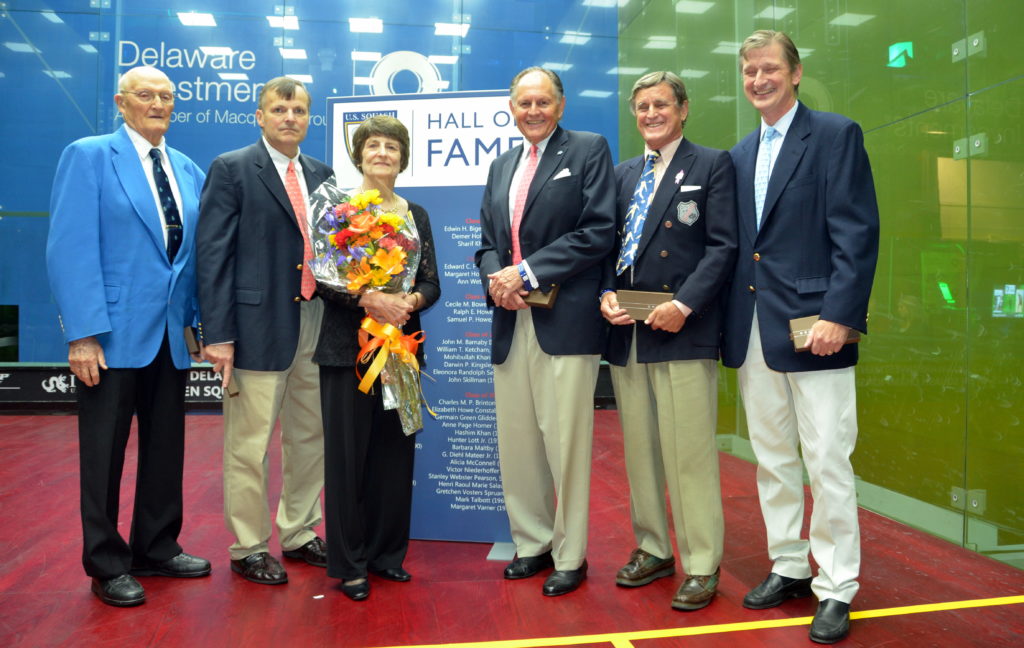
Samuel P. Howe, III, died last week at the age of eighty-four. Howe grew up playing at Merion Cricket Club. He starred on the varsity at Haverford School, which lost just one interscholastic match in his tenure. At Yale he played number one all three years on varsity, led the Eli to an intercollegiate team title in 1958 and as captain helped them upset the odds to clinch the 1959 national five-man team title.
In 1962 he scored an even more shocking victory: unseeded, having never won any adult squash tournament, Howe blitzed through the National Singles including an exciting recovery from a 2-0 deficit in the finals winning 15-13 in the fifth. He captured a second National Singles in 1967 and lost a further three times in the finals. He also won every major annual tournament during the winter circuit at least once.
Howe was a classic left-wall doubles player (his long, fluid strokes reminded everyone of Sam Snead’s golf swing). He won the National Doubles in 1963, 1964, 1967, 1969, 1970 and 1971, the first three with Bill Danforth and the second three with his younger brother Ralph Howe. In 1967 Howe pulled off a North American grand slam, winning the national singles and doubles titles of both the U.S. and Canada, a feat that has never since been duplicated. He later won the National Doubles 55+ in 1996 and 65+ in 2004.
A brilliant athlete, Howe was a top tennis player at Haverford and Yale and won two rounds and almost the necessary third in the qualifying at Wimbledon in 1967. He was also a national champion in court tennis. Howe was inducted into the College Squash Association Hall of Fame in 1994, the U.S. Squash Hall of Fame in 2002, the Haverford School Athletic Hall of Fame in 2011 and the International Court Tennis Hall of Fame last December.
Beyond the on-court achievements, Howe was known for his keen interest in the squash community. He mentored generations of players. He was an avuncular presence in the galleries at a multitude of events both large and small. He came to almost every day of matches at the U.S. Open. Just days before the pandemic shut down the country, he flew out on his own to Minneapolis to watch the 2020 National Doubles. He served on the board, executive committee and various committees of US Squash, as well as the U.S. Court Tennis Association and the U.S. Jesters Club and was president of the Racquet Club of Philadelphia.












